Cilla squinted at the house. It sat squarely in the meadow. Despite the faded paint and angles that were slightly off, it somehow seemed very solid. “Are we going there now?”
“No. It’s late. We’ll go straight to Aunt Hedvig’s and get ourselves installed. But you can come with me tomorrow if you like. The cousins will all be meeting to see what needs doing.”
“I can’t believe you’re letting the government buy the land,” said Sara.
“We’re not letting them,” sighed Mum. “They’re expropriating.”
“Forcing us to sell,” Cilla said.
“I know what it means, smartass,” muttered Sara and kicked the back of the passenger seat. “It still blows.”
Cilla reached back and pinched her leg. Sara caught her hand and twisted her fingers until Cilla squealed. They froze when the car suddenly braked. Mum killed the engine and glared at them.
“Get out,” she said. “Hedvig’s cottage is up this road. You can walk the rest of the way. I don’t care who started,” she continued when Cilla opened her mouth to protest. “Get out. Walk it off.”
They arrived at Hedvig’s cottage too tired to bicker. The house sat on a slope above the village, red with white window frames and a little porch overlooking the village and lake. Mum was in the kitchen with Hedvig. They were having coffee, slurping it through a lump of sugar between their front teeth.
“I’ve spoken to Johann about moving him into a home,” said Hedvig as the girls came in. “He’s not completely against it. But he wants to stay here. And there is no home here that can handle people with… nerve problems. And he can’t stay with Otto forever.” She looked up at Cilla and Sara and smiled, her eyes almost disappearing in a network of wrinkles. She looked very much like Nana and Mum, with the same wide cheekbones and slanted grey eyes.
“Look at you lovely girls!” said Hedvig, getting up from the table.
She was slightly hunchbacked and very thin. Embracing her, Cilla could feel her vertebrae through the cardigan.
Hedvig urged them to sit down. “They’re store-bought, I hope you don’t mind,” she said, setting a plate of cookies on the table.
Hedvig and Mum continued to talk about Johann. He was the eldest brother of Hedvig and Nana, the only one of the siblings to remain in the family house. He had lived alone in there for forty years. Mum and her cousins had the summer to get Johann out and salvage whatever they could before the demolition crew came. No one quite knew what the house looked like inside. Johann hadn’t let anyone in for decades.
There were two guest rooms in the cottage. Sara and Cilla shared a room under the eaves; Mum took the other with the threat that any fighting would mean her moving in with her daughters. The room was small but cosy, with lacy white curtains and dainty furniture, like in an oversized doll’s house: two narrow beds with white throws, a writing desk with curved legs, two slim-backed chairs. It smelled of dried flowers and dust. The house had no toilet. Hedvig showed a bewildered Cilla to an outhouse across the little meadow. Inside, the outhouse was clean and bare, with a little candle and matches, even a magazine holder. The rich scent of decomposing waste clung to the back of the nose. Cilla went quickly, imagining an enormous cavern under the seat, full of spiders and centipedes and evil clowns.
When she got back, she found Sara already in bed, listening to music with her eyes closed. Cilla got into her own bed. The sheets were rough, the pillowcase embroidered with someone’s initials. She picked up her book from the nightstand. She was reading it for the second time, enjoying slowly and with relish the scene where the heroine tries on a whalebone corset. After a while she took her glasses off, switched off the lamp and lay on her back. It was almost midnight, but cold light filtered through the curtains. Cilla sat up again, put her glasses on and pulled a curtain aside. The town lay tiny and quiet on the shore of the lake, the mountain beyond backlit by the eerie glow of the sun skimming just below the horizon. The sight brought a painful sensation Cilla could neither name nor explain. It was like a longing, worse than anything she had ever experienced, but for what she had no idea. Something tremendous waited out there. Something wonderful was going to happen, and she was terrified that she would miss it.
Sara had fallen asleep, her breathing deep and steady. The Cure trickled out from her earphones. It was a song Cilla liked. She got back into bed and closed her eyes, listening to Robert sing of hands in the sky for miles and miles.
Cilla was having breakfast in the kitchen when she heard the crunch of boots on gravel through the open front door. Mum sat on the doorstep in faded jeans and clogs and her huge grey cardigan, a cup in her hands. She set it down and rose to greet the visitor. Cilla rose from the table and peeked outside. Johann wasn’t standing very close to Mum, but it was as if he was towering over her. He wore a frayed blue anorak that hung loose on his thin frame, his grime-encrusted work trousers tucked into green rubber boots. His face lay in thick wrinkles like old leather, framed by a shock of white hair. He gave off a rancid, goat-like odour that made Cilla put her hand over her nose and mouth. If Mum was bothered by it, she didn’t let on.
“About time you came back, stå’års,” he said. He called her a girl. No one had called Mum a girl before. “It’s been thirty years. Did you forget about us?”
“Of course not, uncle,” said Mum. “I just chose to live elsewhere, that’s all.” Her tone was carefully neutral.
Johann leaned closer to Mum. “And you came back just to help tear the house down. You’re a hateful little bitch. No respect for the family.”
If Mum was upset, she didn’t show it. “You know that we don’t have a choice. And it’s not okay to talk to me like that, Johann.”
Johann’s eyes softened. He looked down at his boots. “I’m tired,” he said.
“I know,” said Mum. “Are you comfortable at Otto’s?”
Cilla must have made a noise, because Johann turned his head toward her. He stuck out his hand in a slow wave. ”Oh, hello there. Did you bring both children, Marta? How are they? Any of them a little strange? Good with music? Strange dreams? Monsters under the bed?” He grinned. His teeth were a brownish yellow.
“You need to go now, Johann,” said Mum.
“Doesn’t matter if you move south,” Johann said. “Can’t get it out of your blood.” He left, rubber boots crunching on the gravel path.
Mum wrapped her cardigan more tightly around herself and came inside.
“What was that about?” Cilla said.
“Johann has all sorts of ideas.”
“Is he talking about why we have so much craziness in the family?”
“Johann thinks it’s a curse.” She smiled at Cilla and patted her cheek. “He’s very ill. We’re sensitive, that’s all. We have to take care of ourselves.”
Cilla leaned her forehead against Mum’s shoulder. Her cardigan smelled of wool and cold air. “What if me or Sara gets sick?”
“Then we’ll handle it,” said Mum. “You’ll be fine.”
What everyone knew was this: that sometime in the late nineteenth century a woman named Märet came down from the mountain and married Jacob Jonsson. They settled in Jacob’s family home, and she bore him several children, most of whom survived to adulthood, although not unscathed. According to the story, Märet was touched. She saw strange things, and occasionally did and said strange things too. Märet’s children, and their children in turn, were plagued by frail nerves and hysteria; people applied more modern terms as time passed.
Alone of all her siblings, Cilla’s mother had no symptoms. That was no guarantee, of course. Ever since Cilla had been old enough to understand what the story really meant, she had been waiting for her or Sara to catch it, that, the disease. Mum said they weren’t really at risk since Dad’s family had no history of mental illness, and anyway they had grown up in a stable environment. Nurture would triumph over nature. Negative thinking was not allowed. It seemed, though, as if Sara might continue the tradition.
Читать дальше
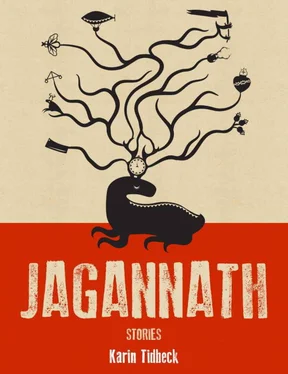

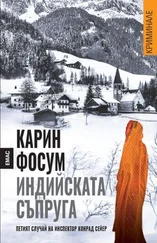
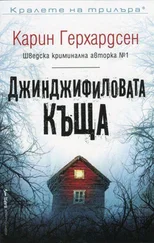
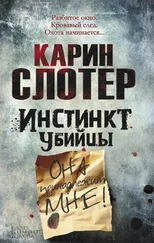


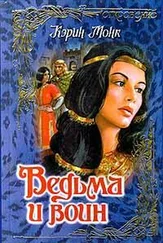




![Карин Тидбек - Аматка [ЛП]](/books/438406/karin-tidbek-amatka-lp-thumb.webp)